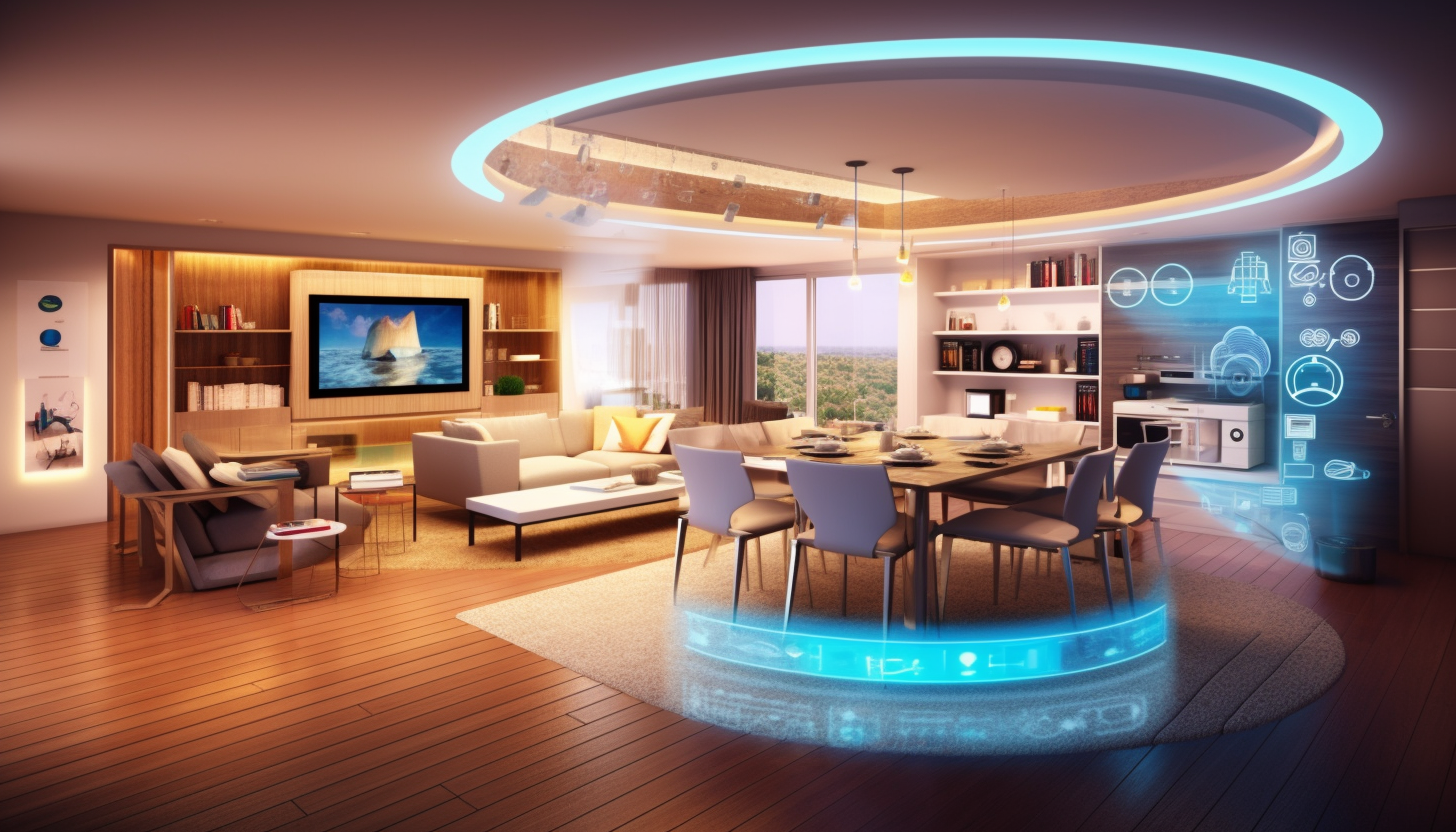P
May 28, 2023
Smart Home Technology for Independent Living: Innovative Gadgets and Solutions
#Smart Home
#Independent Living
#Gadgets
#Solutions
#Voice-Activated Devices
#Smart Home Systems
#Safety
#Security
#Voice Assistants
#Lighting Systems
#Home Monitoring
#Smart Appliances

independent-living-thumbnail
The Need for Smart Home Technology for Independent Living
As the world becomes increasingly technologically advanced, the need for smart home technology for independent living becomes more critical. The concept of smart homes revolves around the adoption of innovative gadgets and systems that make everyday tasks easier and more convenient. The aim is to provide a seamless, automated, and highly personalized living experience. The benefits of smart home technology for independent living are numerous. It can improve safety, security, comfort, efficiency, and accessibility. It also empowers the elderly and those with disabilities to live independently. Independent living is a crucial aspect of aging well. It empowers individuals to maintain their independence and dignity despite physical or mental limitations. The key to successful independent living is providing the right tools and solutions to ensure comfort, safety, and accessibility.
Voice-Activated Devices: The First Step Towards a Smart Home
One of the first steps towards a smart home is the adoption of voice-activated devices. Devices such as Amazon Echo, Google Home, and Apple HomePod allow you to control your home's appliances, features, and functions with simple voice commands. These devices are not only convenient and easy to use, but they also provide a high level of security and privacy. They can be programmed to respond only to specific voices, ensuring that unauthorized users cannot control your home. These devices can control lighting, heating, and appliances, making it easy to manage your home from anywhere. They can also provide information, entertainment, and can even order groceries for you. Voice-activated devices offer a great starting point for those looking to adopt smart home technology for independent living.
Smart Home Systems: Building Blocks of a Smart Home
Once voice-activated devices have been adopted, the next step is to implement a smart home system. A smart home system is a comprehensive set of devices and technologies that work together to automate and control various aspects of your home. These systems can be controlled via a single interface, making them easy to use and manage. They can be configured to respond to your specific needs and preferences. For example, they can turn on the lights, adjust the thermostat, and turn on the TV at a specific time every day, or when they detect you're home. They can also monitor your home for safety and security, alerting you to any unusual activity. They can control your heating and cooling systems, your appliances, and your home's access points. By adopting a smart home system, you can enjoy a high level of convenience, comfort, and safety.
Lighting Systems: A Key Element of a Smart Home
Lighting systems are another key element of a smart home. They can be controlled via voice commands or by using a smart device or app. They can be programmed to turn on or off at specific times, or can respond to your presence by turning on when you enter a room. They can even change color to match your mood or the time of day. Lighting systems can also be integrated with other devices and systems in your home, such as your heating and cooling, or your smart appliances. This integration can make your home more efficient and responsive. They can also provide safety and security by automatically turning on when you enter a room, or can alert you to intruders by changing color. They can also make your home more comfortable and cosy, whether it's for reading, relaxing, or entertaining.
Home Monitoring: The Eyes and Ears of Your Smart Home
Home monitoring is another key element of a smart home. This technology allows you to monitor and manage your home from anywhere, whether it's your house, your parents' house, or even your vacation home. Home monitoring systems can monitor your home's security, alerting you to intruders, fires, or leaks. They can also monitor your home's environment, alerting you to temperature changes, humidity levels, or gas leaks. They can even monitor your home's accessibility, letting you know if a door or lift has been left open, or if there is a fall risk. These systems can send notifications to your phone, or can speak directly to you through a speaker. They can also allow you to control your home's devices remotely, or to view live video feeds.
Smart Appliances: Making Your Home Smart
Smart appliances are another crucial element of a smart home. They are appliances with digital controls that can be controlled remotely by a smart device or app. They can be programmed to switch on or off at specific times, can remember your preferences, and can notify you when they need maintenance or repairs. They can also be integrated with other devices and systems in your home, which can make your home more efficient and responsive. They can provide safety and security by turning off if they detect a fire, leak, or other hazard. They can also provide comfort and convenience by adjusting temperatures automatically, or by turning on the lights when you enter a room. They can also make your home more comfortable and cosy, whether it's for cooking, cleaning, or heating.
Conclusion: The Future of Smart Home Technology for Independent Living
Adopting smart home technology for independent living is a journey, not a one-time purchase. It's about continually seeking out new technologies and solutions that can improve your home and your life. As technology advances and new innovations emerge, the future of smart home technology for independent living looks promising. New technologies such as artificial intelligence, smart home assistants, and smart homes could make our homes even more responsive and personalized. They could provide even more convenience, comfort, and safety. They could empower individuals with disabilities or seniors to live independently. They could even help us to age well. Whether it's adopting voice-activated devices, implementing a smart home system, adopting home monitoring, or upgrading your appliances, there are numerous ways you can start your journey towards a smart home today.


